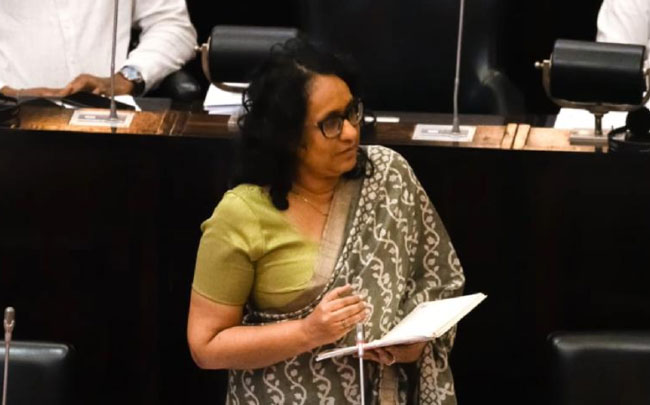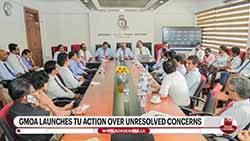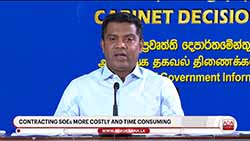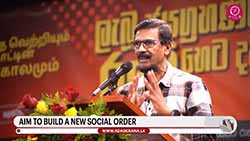Financial allocation alone is insufficient to improve quality of education: PM Harini
November 25, 2025 08:40 pm
The highest amount allocated for education in history has been made in the 2026 budget, enabling the present government to formulate educational policies, plans and establish institutional structures for the sector, Prime Minister Dr. Harini Amarasuriya stated. She also emphasized that financial allocations alone are insufficient unless they are supported by a strong institutional framework for effective policy implementation.
The Prime Minister made these remarks in Parliament during the debate on the budget allocation for the Ministry of Education, Higher Education and Vocational Education.
Highlighting the importance of sound educational policies, the Prime Minister noted that a quality education system depends on the integration of well-designed policies, strong institutional structures and adequate financial support.
The prolonged failure to fulfil these three essential components, she said, has contributed to the challenges currently faced by the education sector. Despite these challenges, the commitment of teachers, principals, and education officials has helped maintain overall quality of education, the Prime Minister noted.
Prime Minister Dr. Harini Amarasuriya further observed that one of the key achievements in 2025 was the strengthening of decision-making processes within the sector by identifying institutions, addressing structural shortcomings, aligning them with policy frameworks, and ensuring that financial allocations correspond to policy priorities. These measures, she said, were part of the preparatory work for major education reforms scheduled to commence in 2026.
The Prime Minister emphasized that formulating policies must be accompanied by proper planning and clear targets for officials. She pointed out that although successive governments had introduced various education policies, significant curricular reform had not changed in school curricula archived due to poor planning, weak institutional structures, and inadequate financial allocations.
According to the Prime Minister, the Ministry of Education focused its 2025 initiatives on four core areas: promoting equity, enhancing quality, strengthening governance and formulating evidence-based policies through data-driven analysis. She expressed satisfaction that policies, plans, and institutional frameworks were developed around these four pillars.
Referring to the recent report presented by the committee appointed to address issues at the Gampaha Wickramarachchi University of Indigenous Medicine, she noted that past decision-making processes had deteriorated due to the influence of personal interests and political agendas replacing proper principles and policies.
She further stated that this had undermined university standards and resulted in injustices to students. Similar structural weaknesses had affected many institutions across the education sector. The government, she added, had taken steps during 2025 to correct these shortcomings and restore order.
The Prime Minister noted that a sum of Rs. 7.04 billion, equivalent to 2.04% of GDP, has been allocated for education in the current budget, marking the highest allocation in many years. She reiterated that the government does not claim to reach the 6% of GDP benchmark within the first year.
She also said that the government recognizes that achieving that target requires policy development and strengthened institutions, thus allocating funds alone is not sufficient; funds must be allocated in alignment with policies, while strengthening institutions and policy implementation.
Additionally, Rs. 3,000 million has been allocated for education reforms, under which current initiatives are being implemented. She stated that the expenditures for the year 2025 were discussed and the budget was passed at the end of April 2025, and the government began expenditure from May. Accordingly, the financial progress was 18%, and by December it had reached 69%, the PM said.
However, this level of efficiency has not been demonstrated in the education sector before. This progress was possible because we set clear targets for officials, ensured close monitoring, and strengthened accountability. By 2026 and 2027, we aim to achieve even greater progress, she added.
The Prime Minister Dr. Harini Amarasuriya also acknowledged that challenges remain, noting that the sector continues to move forward while addressing longstanding weaknesses. She stressed that efficiency must be further enhanced and that prompt, effective action is essential when issues arise in schools or universities. She underscored the importance of responsibility, systematic planning, policy formulation, and gradual but consistent advancement.












